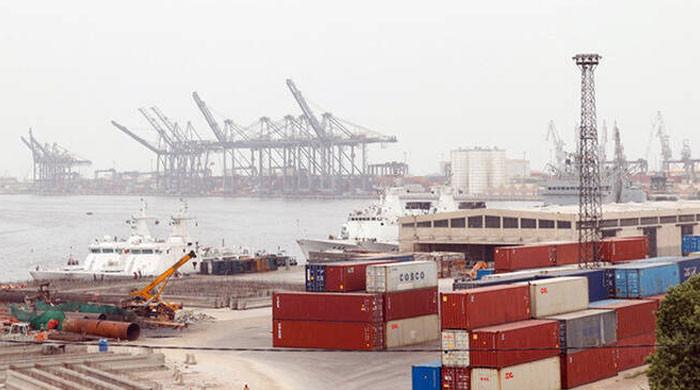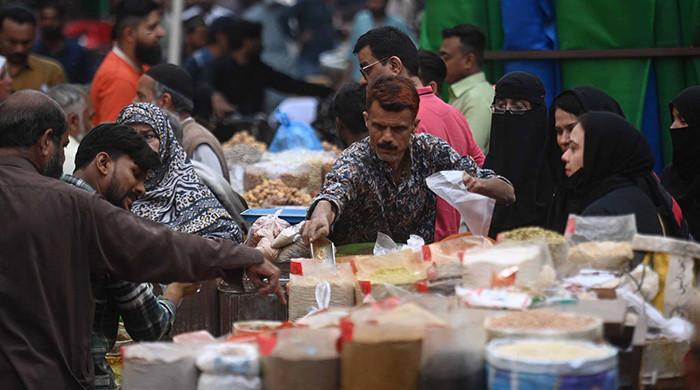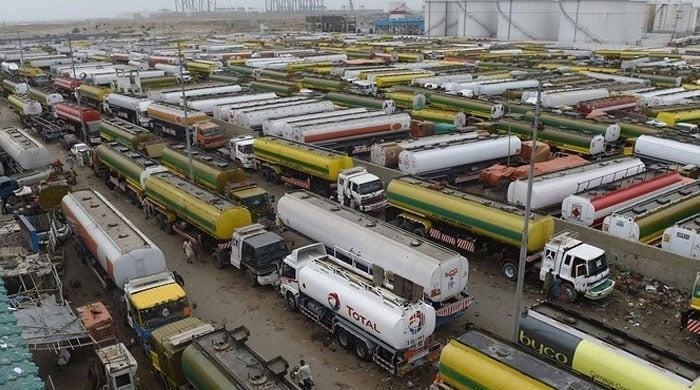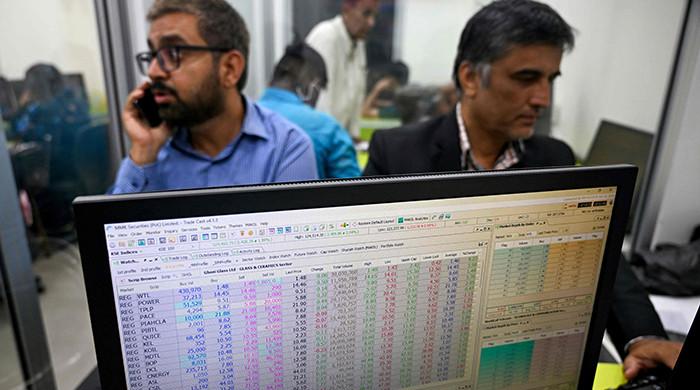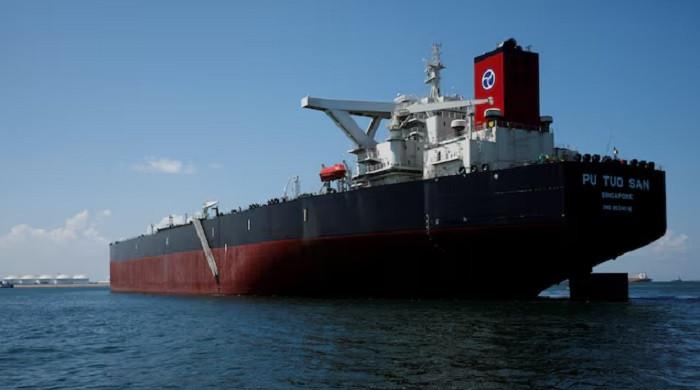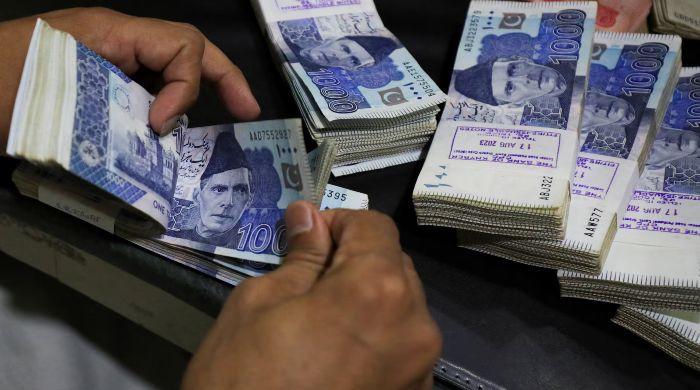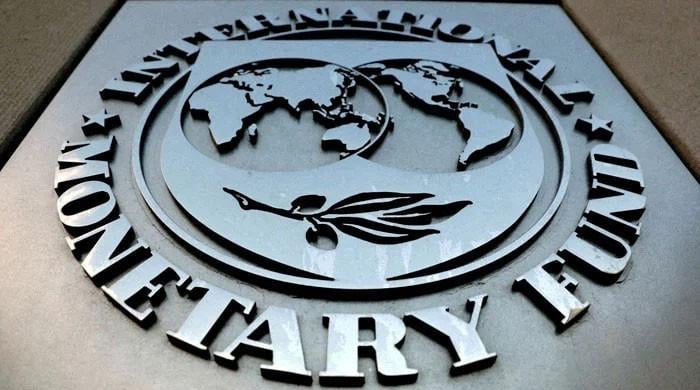Sigh of relief for Pakistan as IMF revives bailout programme after months-long efforts
Miftah Ismail announces development on Twitter; Islamabad likely to receive $1.17bn loan tranche within six days
August 29, 2022
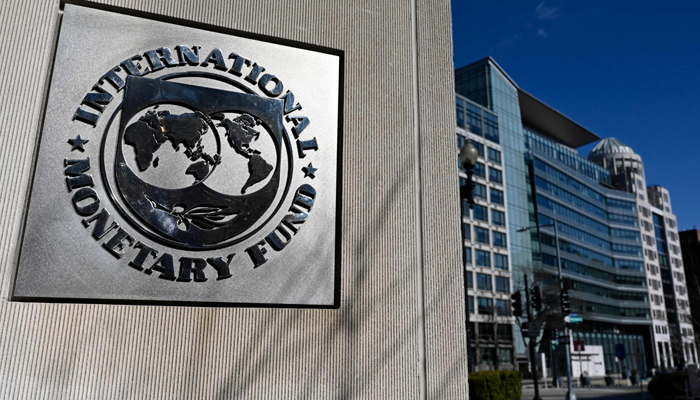
- Miftah Ismail announces development on Twitter.
- Islamabad is likely to receive $1.17bn loan tranche within six days.
- IMF agrees to increase loan size, extends it till June 2023.
ISLAMABAD: After months-long hectic efforts, the International Monetary Fund (IMF) Executive Board Monday approved the seventh and eighth review of the stalled $6 billion Pakistan programme, announced Finance Minister Miftah Ismail.
The finance minister announced the development on his Twitter handles saying: “Alhamdolillah the IMF board has approved the revival of our EFF programme. We should now be getting the seventh and eighth tranche of $1.17 billion.”
The finance minister also thanked Prime Minister Shehbaz Sharif "for taking so many tough decisions and saving Pakistan from the default".
"I congratulate the nation,” said the finance minister.
IMF increases loan size; extends duration
In a statement issued in this regard, the Fund announced that the executive board completed the combined seventh and eighth reviews of the "extended arrangement" under the Extended Fund Facility (EFF) for Pakistan.
"The board’s decision allows for an immediate disbursement of SDR 894 million (about $1.1 billion), bringing total purchases for budget support under the arrangement to about US$3.9 billion," the statement read.
The global lender also approved to increase the loan size and extended it till June 2023.
The Fund further added that in order to support programme implementation and meet the higher financing needs in FY23, as well as "catalyse additional financing, the IMF Board approved an extension of the EFF until end-June 2023, rephasing and augmentation of access by SDR 720 million that will bring the total access under the EFF to about $6.5 billion."
"Pakistan is at a challenging economic juncture. A difficult external environment combined with procyclical domestic policies fuelled domestic demand to unsustainable levels," the global lender noted, adding that the resultant economic overheating led to large fiscal and external deficits in FY22, contributed to rising inflation, and eroded reserve buffers.
It mentioned that the programme seeks to address domestic and external imbalances, and ensure fiscal discipline and debt sustainability while protecting social spending, safeguarding monetary and financial stability, and maintaining a market-determined exchange rate and rebuilding external buffers.
Moreover, the executive board has also approved today the authorities' request for waivers of nonobservance of performance criteria.
Timeline of Pakistan's IMF programme
Pakistan entered the programme with the Fund in 2019, however, Islamabad struggled to keep targets on track due to which only half the funds had been disbursed.
The cash-strapped nation received that last disbursement in February and the next tranche was to follow after review in March, but the government of ousted prime minister Imran Khan slashed the petroleum prices by massively giving subsidies to the nation which threw fiscal targets and the programme off track.
However, after months-long efforts of the coalition government — that came into power in April — Pakistan reached the staff-level agreement with the Washington-based lender in July after completing all prior conditions.
The Executive Board today reviewed the progress and decided to resume the programme and approved the seventh and eighth loan tranches.
Pakistan is now likely to receive a $1.17 billion loan tranche from Fund within six days.
Struggle to clinch IMF deal
The uncertainty surrounding the IMF programme has been taking a toll on the economy of Pakistan as the financial markets have been awaiting the final decision for the last several months.
While the previous PTI-led government breached the conditions agreed with the Fund to provide relief to the nation; the coalition government took a “tough decision” to convince the board to resume the stalled programme.
However, the intense political atmosphere of Pakistan kept the uncertainty regarding EFF programme’s revival hanging on the leadership and markets.
Last week, just days before the scheduled Executive Board meeting. The PTI-led Khyber Pakhtunkhwa government allegedly refused to implement the terms of the IMF agreement in a letter as part of “a ploy to plunge Pakistan into a flood of economic crisis”.
In a letter written to Miftah, KP Finance Minister Taimur Khan Jhagra said that the provincial administration might find it difficult to run a provincial surplus this year in view of flood-related damages.
It should be noted that ensuring surpluses by provinces this fiscal year is a key requirement previously agreed upon to revive the IMF programme.
The coalition government was once again worried after the development as it might have jeopardised Islamabad’s position during the executive board’s meeting.
The ruling parties also criticised the Khyber Pakhtunkhwa government for “playing politics” after it allegedly refused to implement the terms of the IMF agreement in a letter as part of “a ploy to plunge Pakistan into a flood of economic crisis”.
Later, it was learnt that former minister Shaukat Tarin allegedly asked Punjab and Khyber Pakhtunkhwa to withdraw from the International IMF deal.
The revelations came to the fore in an audio leak earlier today where the ex-finance minister could be heard directing Punjab Finance Minister Mohsin Leghari and Jhagra to cite recent floods as a core reason for withdrawing from the deal.
After the IMF board took its decision, Planning Minister Ahsan Iqbal said that the global lender has approved the programme despite PTI's treacherous act.
'Encouraging progress’
Reacting to the “good news”, Prime Minister Shehbaz Sharif said that the revival of the IMF programme has eliminated the default threat looming over Pakistan.
“The IMF programme is a major step forward in our efforts to put Pakistan's economy back on track,” he said, adding the revival of the programme will provide much-needed stability.
The premier further added that he prays that this becomes the last programme with the global lender. “I hope Pakistan doesn’t go back to the IMF in future,” he stated.
‘IMF may relax some conditions'
Following the development, the finance minister said that keeping in view Pakistan’s current state it is expected that the Fund will give relaxation in some of its conditions.
“The Fund sympathised with the flood affectees today, and we are hopeful that the conditions of this programme will be relaxed,” he said, adding that any problems that arise in future will be dealt with after consultations with the IMF.
Regarding the market’s reaction, Miftah said that the rupee will stabilise from tomorrow. “We have successfully saved the county from default,” he stated.




